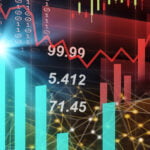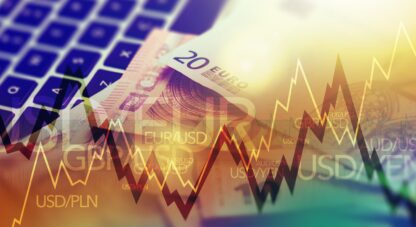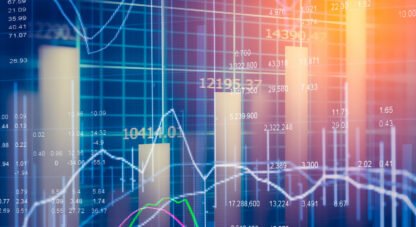About this week’s show:
- Biblical Joseph Story: The earliest account of a business cycle
- The central bankers ecumenical religion of “perpetual growth”
- GDP should really be “Gross Debt Product”
- Be sure to purchase Mr. Sedlacek’s book: Economics of Good and Evil
About the guest: Sedlacek is a Czech economist and university lecturer. He is the Chief Macroeconomic Strategist at ČSOB (a Czech national bank), a member of a group Narrative of Europe commissioned by Manuel Barroso and Council Member of World Economic Forum focused on New Economic Thinking. He is a former member of the National Economic Council of the Czech Republic and an economic advisor to former President Václav Havel. His book Economics of Good and Evil, a bestseller in the Czech Republic, was translated into English and published by the Oxford University Press in June, 2011.” Read more…
The McAlvany Weekly Commentary
with David McAlvany and Kevin Orrick
“Now, of course, in our knowledge, in our thinking, even in our daily ethic we have many, many inconsistencies. This is quite normal, but we still live our lives. But in reality, there is not a single inconsistency in the practice. The only place where inconsistencies reside is in our heads, in our theories, and in our inabilities to grasp and see the whole picture.”
– Tomáš Sedláček
Kevin: We’re going to be bringing our guest, Tomáš Sedláček on here in a moment. He is the author, of course, of the best-selling book in Czechoslovakia, and hopefully, here in America, Economics of Good and Evil, by Oxford Press. Dave, I’ve said this before about other guests, but I have to tell you, I’ve been really looking forward to this interview after reading such an amazing book.
David: It is an integrated work and I think that’s one of the things that speaks to both of us because while it is a book on economics, it is a book about all the things that drive economics, all the things that are part of economics. And rather than portraying economics as a dismal science, which is what we know it as, it is all of the things in life that we find significant and meaningful. This is the stuff of economics.
Kevin: And for the person who is listening right now and saying, “Okay, I’m going to change the channel. I’m going to go to another podcast because I can’t see economics being that way,” the problem is exactly what he addresses. We think of economics like chewing on a dry piece of turkey. It’s just mathematical models and reduction to just pure dollars and cents.
David: No, but it includes love and hate, gift and sacrifice, slavery.
Kevin: It’s the poetry of mythology.
David: Absolutely.
Kevin: And that may sound crazy to the listener right now, but listen on, because this is a man who finally has put together humanity, God, economics, mythology, the things that make us tick, Dave. When we go home and we play music, or we dance with our kids, that’s also ideology and economics, strangely enough. And you’ll get to see this integration in Tomáš Sedláček.
David: Tomáš Sedláček, today you teach economics at Charles University in Prague. You’ve served on the national economic council in Prague. You were an economic advisor to Václav Havel, the first Czech president after the fall of communism, and that role was at the tender age of 23. Having read your book, Economics of Good and Evil, I can see why that invitation to serve with Václav Havel was made to you. I would like to explore many of the ideas that you have in Economics of Good and Evil, and perhaps we can start with just a brief overview. You have broken the book into two parts. In the first part you represent economic thought as throughout history having been influenced by philosophy, religion and ethics. And in the second part, you look at more the 20th century and see that a wider social approach to economics has fallen away. Today, the substitute is with mathematical rationalism, and a very mechanistic understanding of the world. Is that a fair appraisal of your book?
Tomáš Sedláček: Yes, that’s wonderful. You should travel with me everywhere I go, this is perfect.
David: I’d like to start with something personal and relate it to a very contemporary issue. When we consider the financial markets today, we find retired economics professors in positions of prominence at most central banks, and these economists are working largely by the same playbook, attempting to prop up aggregate demand and enable the economies of the world to grow, and to grow, and to grow, using very procyclical policies. You were raised in a country where command and control dynamics were what drove the communist economic model. Would you, for us, please, unpack the current role of the central banker, or central planner, and tell us a little bit about what set you on a different path than that of command and control economics at a young age?
Tomáš: Well, growing up in a communist regime, which broke down when I was twelve, so I am the last generation that still remembers it in some vivid form, you see the other ideologies a little bit more clearly than a person who has been sort of born with an ideological spoon in his or her mouth already. So, this is one of the few advantages coming from a country that lived and inbred and medialized under a different ideology.
So today we could see in the way of the end of history, economics has become the growth model. We don’t really criticize capitalism, we criticize growth capitalism. These are two completely different systems, although many people don’t distinguish between the two. Nevertheless, this growth capitalism has become the most ecumenical religion of the whole globe. Everybody believes in it, despite the culture, or religion, or anything else. And, of course, the guardians of this ideology are partly central bankers. These are the priests, the highly educated, the highly acclaimed members of our society, you know, priests who are guiding the world. I would even say, much more important in strength than our presidents are central bankers, who have equal, or perhaps even slightly larger influence than the economists.
And so you can, of course, go down two alleys from here. First of all, this current situation of zero interest rates. I remember I was giving a talk at the European Central Bank about the time when they became the lenders of last resort. My speech was called believers of last resort, because you know that in Latin the word credo (credit) means belief – faith. So, central bankers are also playing the role of the priest in being the believers of last resort. When nobody else believes, it’s the central banks and the central bankers who must believe instead of the market, in the place of the market. They offer zero interest rates. That means they have absolute belief in the future without any single question, and this is exactly a message that must be given to an economy that is full of doubts and the faith of the markets sort of being shattered, there come the priests of the central banks saying, “We will give you our faith. We will be the believers of last resort.”
David: So, you have growth capitalism in contrast to capitalism, and with that, a very asymmetrical approach to monetary policy which has been taken, with central bankers exaggerating growth in the good times, and fighting for more growth in periods where the economy is in a natural phase of contraction. And if we look at Joseph thousands of years ago, the biblical account of an economic cycle shows us what it looks like to “lean into the wind.” What lessons from that story do you think need to be brought forward to contemporary economic analysis and monetary policy-making?
Tomáš: This is a beautiful economic story. It’s the oldest account of a business cycle that we have in the written form of mankind. It comes from the Old Testament, I suppose you know, from Genesis Chapter 42. And there, Joseph tells the Pharaoh that instead of having a dream about cows, what he really had what a macro-economic prediction for the 14 upcoming years, and the first seven will be years of growth, followed by seven years of famine.
And the advice there was very simple. Joseph described a business cycle, that the economy has a natural tendency to go up and to go down, just like our mood in our everyday lives – it goes up and it goes down. Trying to be constantly happy is a recipe for rehab (laughs). So seven years of plenty were followed by seven lean years, and the advice that Joseph gives to Pharaoh was, in the good years, in the growth years, do not consume everything that grows, but save a part of it so that you have something called savings. And then in the bad years, these savings will come in extremely handy and you will be able to avoid the famine. And this is exactly what Pharaoh does. So that is one message.
The second message, quite interesting, this is a very, very, very old story, one of the oldest that we have as mankind. There were no universities at that time, no economics, no excel sheets, no nothing, no field of economics. Yet the Egyptian society, at least according to the story, managed to go through a very severe economic crisis, much, much more severe than what we are experiencing now. But they managed to go through it without a single penny of debt. And that is yet another fiscal side of the problem with which we are dealing. The only way we are able to even think about how to deal with the crisis is to issue debt. We think in debt. Doing anything else is completely outside of our fantasies.
So, you see, my point here is, if we had followed such a simple rule as, don’t try to maximize your growth, but maybe slow down your growth, slow down your consumption, then we could have gone through this crisis with slightly increased budget debt, but not to the point that the economies are actually going to the proximity of bankruptcy.
David: So, by contrast, we have debts today which were not acquired in the context of crisis as a stopgap measure, but whether it is at the level of private of corporate or governmental, not out of necessity, debts are being accumulated in the context of abundance. What does that suggest to you?
Tomáš: Exactly. Instead of saving during the good years, we have indebted our economies even further. Well, it’s a certain fetish of growth, even if we had growth then we would still feel like it isn’t enough. What we have done, I think, both fiscally and monetarily, if I may say so, in the last generation or so we have sold stability in order to buy growth. This was the tradeoff of the GDP growth years we had. A huge part of it was very much artificial debt-driven growth. So we have accumulated these debts during the good years exactly because we wanted more growth and we were selling stability, in this case fiscal stability – we were selling it and we were buying growth. And the problem is that we were actually successful. We created a system which can grow very quickly, but it can also be extremely unstable very quickly. Heavily indebted economies cannot take any more debt, even in a situation when such debt would be necessary or justifiable. So, what needs to be done in the future is, again, when growth comes, and it will come, when it comes so that we don’t maximize it and don’t spend it all on consumption, but that we would take this growth and reverse the engine and instead of selling stability in order to buy growth as we have done in the past, what we should do now is, we should start selling growth in order to buy back stability and to decrease the tremendous amount of debt that the government has.
David: There is this issue in the context of economics as you are looking at the history of economics, that as we said before, the first part of your book is dealing with the philosophical, the religious, the ethical, as you find throughout literature, whether it is the Epic of Gilgamesh, the Old Testament, the New Testament, or more contemporary works, as well, and the idea is there that ethics and morality are part of the study of economics. Is that moral dimension quite obvious in this point of debt, where you are, as you describe, energy-stripping the future to the benefit of the present via a debt-driven growth model?
Tomáš: Yes, exactly. A nice way to explain this is, if I go to a bank and I borrow, let’s say, $10,000, only a complete idiot would say that I’m $10,000 richer. I can pretend I’m $10,000 richer, but everybody knows that, in fact, I am not richer. Everybody understands the difference between owing money and owning money (laughs). But the important part about this is that when government performs almost exactly the same step, i.e., the government goes and borrows, let’s say, 3% of GDP in order to invest it into the economy, so it does, and let’s say the next year, or the year after, the economy grows by the same 3% of GDP, for example.
If this happens, and this happens very frequently, analysts and economists are jumping up in joy, screaming to the world that, halleluiah, we are now 3% richer. We are not 3% richer. We are 3% more indebted. That’s where that growth came from. So, it’s sort of a GDP that grew by 3% isn’t really a GDP as in Gross Domestic Product, but GDP as in Gross Debt Product. And in that case, yes, our Gross Debt Product has grown by 3%. GDP is not a measure of wealth, it is a measure of economic activity, of course, and the more debt money you put into it, the more economic activity you get out of it. So, that is something that is clearly somewhat crazy. That is point number one.
Point number two, this attempt to induce the economy to be more active than it wants to be is, in a way, also, engineering. This is engineering in its purest. The economy isn’t depressed. This is another thing that we must realize. That is not a very good diagnosis. The economy, if anything, suffers from manic depression. It tends to exaggerate good moods into, invest-all mania, and it tends to overdo its bad moods into almost suicidal depression. And if you want to treat somebody who has bipolar disorder like I believe is a good description for our economy, as we could already see in the story of Joseph.
So, if you want to treat somebody who suffers from bipolar depression, you can’t just deal with the depressions. You have to address, so to speak, the mania first, and you have to slow down, you have to cool down these manic episodes. And these manic episodes, by the way, are almost as lethal and as dangerous as the depression part of the bipolar. People commit suicide because they believe they can fly, for example. And that is exactly the same situation with our economy. We almost committed suicide because we believed we could fly. We believe that the boom and bust economy is over because we have invented this recipe represented, for example, by Alan Greenspan.
David: Going back to GDP, I think that is a very insightful little piece, that it is not a measure of wealth, but just a measure of activity, because we are fixated on this notion of GDP growth, and looking at GDP growth, we now have a debt-reliant economy. Studies have shown that without a 2% increase in credit growth, net of inflation, we find the economy dipping into recession. So, we increase and encourage debt. The government stands as the spender of last resort, deficit spending, in the case of private sector falling down and falling short, but all of this assumes that debt is an acceptable economic foundation. Is there a way to reverse debt dependency, and what are the social and political ramifications?
Tomáš: The answer to that question is actually very easy. The price of reducing debt dependency is slower-growing economies. This is because you are taking a drug away from the economy. The economy got used to being supplied certain amounts of this drug that we could call speed, actually, and that drug is supposed to speed it up more than it would normally do. So, it’s this situation of a drug addict who has been on drugs for a long time, has incorporated that into his or her life, got used to it, got, in a way addicted to it. You know, that also stems quite clearly from the very way you phrased your question that the economy is, in a way, addicted to this cheap drug called a lower interest rate than it should be, and higher government expenses than necessary, or that should be, so that the economy gets hooked.
Now the drugs are out. This is the problem. This is why I disagree with Paul Krugman who says, let’s be Keynesian here, and let’s spend our way out of the crisis. In other words, he is saying, “Let’s give this patient of ours drugs, and by these drugs, the energy will come back.” Well I agree with that, but the situation is different than in the times of Keynes. The situation today is, we are running out of these drugs. That is the problem. If we had endless amount of government debt available, then all the economists wouldn’t even have an argument to start with. And just because the drugs are cheap, which is the situation today, everybody says, “Well, the government should go in debt because interest rates are so low, money is very cheap.” To which I reply, “Well, even if the drug is free, it’s still a drug.” That’s point number one.
Point number two: I have this image of the economy being extremely naïve, because somewhere, I really don’t know where, we took the idea, the belief, the ideology, the image, that the economy should grow 2% every year. That’s like assuming that favorable winds will always blow. That is not a very good assumption. If I want to build a ship, I can’t really build a ship under the assumption that favorable winds will blow all the time. That is not a very good ship. But unfortunately, that is exactly how we have constructed our economics.
I always ask my friend, where did you take it from? Is it written in the Bible? Is it anywhere in our models? Is it in the sky? Did you have a dream about it, that it is normal for the economy to grow 2-3% every year? Just because it has been doing so for the last, I don’t know how many years, doesn’t mean that it will always grow. And it never grew steadily. Even in the good periods of mankind there were crises. There were slight decreases of GDP and nobody was shooting themselves in the leg.
So there, I think, is a huge academic mistake. If we want to be very rigorous, and we should be rigorous, then where did this belief that the economy should grow by a certain percentage every year – where did it come from? That is a very naïve belief. But unfortunately, we have built our pension system on it, we’ve built our government expense system on the assumption that the economies will always grow. Of course, the economy can stand still for a while. There is this huge image that the economy, if it doesn’t grow, it collapses.
But, of course, the economy can stand still. What cannot stand still if the economy doesn’t grow for a long time is all our social institutions that we have built upon it. So again, the point is, I have nothing against growth, like I have nothing against good weather, but you know, expecting that every day will be a happy sunshine day is a recipe for a very depressed life.
David: This gets to the issue of the social and political ramifications, because if we do move to a lower, or slower, growth model, and it doesn’t support our social obligations, or pension system and what have you, then you do have sort of the revolt of the masses on your hands, unless you can convince them that austerity is good for all. So where do you stop catering to the masses and do what is economically wise in the long run?
Tomáš: Rather than to do with masses, it is the sort of mass ideology, that we believe that every year we should grow. It’s as stupid as believing that every day should be a happy day, or a sunny day. This is, I think, generally true of our political life, this is true, even, of our personal life. We have this belief that things have to improve, otherwise they collapse, and this is simply not true. The majority of the history of mankind we didn’t even measure GDP. It wasn’t anything that was actually important in human life.
And you can see this nicely in the following thought experiment: I always ask my audience when the issue comes to this, I always ask them, “How many of you know whether your personal GDP, in other words, your income, whether it went up or down last year? That means last year, 2014, vis-à-vis 2015. Does any one of you know exactly by how much it went up and by exactly, I mean, to the decimal point of a percentage? And nobody ever has given me an answer. People sometimes raise their hand the say, “Well, you know, it went up by about 15%.” And I say, “I don’t want your about, I want it exactly. I can’t tell the media that GDP will go up about something between 2 to 10%, I need an exact figure. Nobody had an exact figure, and I doubt that any of the listeners will have an exact answer.
Well, is it difficult to know how much your income went up by last year? No, you just call your accountant or you check your tax returns and you divide the two numbers, one by another, and you see exactly by how much your income went up. But nobody knows. Now, do we not know because it is methodologically difficult to know? No, it’s easy. Just call your accountant, a two-minute conversation. We don’t know because we don’t care. On a personal level we don’t really exactly care whether our income went up or down because we don’t do these graphs. We don’t have graphs for our personal income on our shelves back home. We don’t do this. Even though our personal GDP, our income is much more important to our lives than some abstract GDP of the whole United States of America, which has almost no relevance to how much you will earn or lose in your day job.
So my question is, what sort of ideological math magic happens when I don’t care about my income when it is on my personal level, but when then it suddenly becomes an income of a country, I’m almost ready to dismantle the European Union just because in some region there this number is not providing me with the result that I was naively expecting? So, if we stop being naïve, and if we actually will be able to think in terms of, “Okay, sometimes it goes up, sometimes it goes down,” just like Job in the Old Testament said, “Can we only expect good things from the Lord? We also have to receive bad things from the Lord.”
So, okay, today the prayer isn’t the Lord, it’s rather the market. So we have to be able to receive good things from the market as well as bad things from the market. The market isn’t just good, the market is like everything else we’ve created – bipolar. A car can be a good thing, it can be a deadly thing. Cell phones are wonderful, but they also collapse, they freeze. They don’t function all the time properly. And the same thing with economics. Economics is not divine. There is no god of economics, there is no regulation in it, it is just our left hand and our right hand, and it is about time that we stopped believing in this mysterious force that is directing the whole world forward.
David: The quote, “appetite grows with the eating,” suggests that getting more sets in motion the desire for more. So the question would be, is there a bliss point where one has enough? Not too much, not too little. And of course, the context we have is in a materialist culture, bent on accumulation and growth, based on the belief that more is better, which may tie into why we have that expectation of 2% growth.
Tomáš: Yes, about this question about the bliss point, let’s just try to close our eyes for two seconds and come, perhaps, just for these two seconds, to a horrible realization that the bliss point is actually right now. It’s a psychological issue whether I’m happy or not, and I think for the vast majority, of course, not everybody, but for the vast majority of inhabitants living under the Western culture, we actually already have enough. No one of us is starving, no one of us is unsheltered, we are taking care of each other whenever somebody breaks a bone. The whole society puts money together and cures that person without him being really in any way held responsible for it. This is what we call health insurance. We take care of our own.
There are no longer old people or orphans begging on the streets, really, literally dying of hunger. We take care of them. We take care of them institutionally. We take care of them automatically, so to speak. And we call this social insurance. And if there is a fire in the house, of course, the local collective force comes there with the fire brigade to put the fire out. We really care about each other like we’ve never cared, and we will have this protection of our society wherever we go.
Even if one of the listeners goes now into a jungle, trying to live, I don’t know what, an esoterically, hinduistic life, he or she will still have a credit card and an American passport in their pocket, and will still have this invisible shield of protection, from birth all the way to death.
So I suggest, perhaps, instead of trying to always have some more, realize that, hey, there are other priorities in life besides trying to maximize my income and perhaps in terms of income, we already have exhausted this well of happiness. And I’m not saying that well doesn’t bring happiness, of course it does, but my point here is that this well of happiness has already been excavated to the last drop and there are other wells, there are other sources of growth, moral growth, for example, growth of friendship, growth in art, growth in understanding, growth in scientific cooperation, growth in knowledge. There are other beautiful growths which I think have a huge potential for us, and if we paid the same amount of focus to those areas that we are paying to these debates about let’s try to manufacture good economic weather, I think mankind could live even an economically happier life.
David: You describe Aristotle as one of the first professional humans, and it may be because he is looking at so many of the different areas where you can pursue growth, and find that moderated middle point, excess being not desirable, deficiency being not desirable, but virtue being the mean between excess and deficiency. Maybe that pursuit of being a professional human, looking at what we can aspire to outside of balance sheet growth, would be instructive.
I would like to bring the conversation back around to a few points in your book. This would be a request for a Reader’s Digest version of the story you explore throughout your book. Is it possible (laughs) to quickly move through the high points of economic insight that we glean from the Epic of Gilgamesh 4,000 years ago, through the Greeks, the Old Testament, the New Testament, the primary drivers of these ideas of the 4th through the 12th centuries, and then finally, Descartes, Hobbes, Smith, Mandeville, Alfred Marshall. Is that too much to ask?
Tomáš: Well, if I could say it briefer, I would have written a shorter book.
David: (laughs)
Tomáš: But I’m trying to lead the readers through these gems of our history, I’m always trying to reconnect it with the current movies such as Fight Club, or Lord of the Rings, or reconnect that with some of the stories that we know from the Bible, and make it a little bit more legible. So, it’s very hard to summarize, of course, but all I can say is that economics is just a new form of ideology. There is nothing wrong, and nothing particularly honorable about it, but we should know it, that it is not just a value-free mathematical neutral area from which we can judge our actions, but that it is just another ideology. And this ideology, of course, has deities of its own – one of them is growth, the other one would be efficiency. It has profits of its own that are foretelling, forecasting the future into the last decimal point, everybody admitting that its futile, but everybody still doing it. This is also quite curious.
Then we have ethics – it has ethics of its own, the belief in human selfishness, the belief that human life can be approximated by mathematical formulas, the belief that human beings are here to maximize their utility – that is also philosophy, or ethics, if you will. So, all these values are very strongly embedded in economics. Economics is not a value-free ideology, it is an extremely value-full ideology. It has good beliefs in it also – the belief in freedom, the belief that the human being should be primarily responsible for themselves and should try to bother others as little as they can, the belief in freedom, and the belief in rigorosity.
These are values that, for example, I happen to agree with, but whether I agree with them or not is irrelevant. My point here is that there are values, there are very strong ethical values in economics, some of which are agreeable, some of them are not agreeable, and what I want to do is to bring this stuff again to the attention and talk about our values. Is this belief that we have consistent with our other beliefs? Where will this lead us? What will the end game be when the economy arrives to some stable situation when we are already affluent enough so that the economy doesn’t grow anymore, how will that society look? Will it be a fair society or will it be an unfair society? Will it be a free society or will it be a totalitarian society? And by totalitarianism, I don’t mean just political, but of course economic totalitarianism. We are very afraid of political populism, which is, of course, okay. But we never mention economic populism, and that is also an area of which we should be very careful.
So basically, this is how I would, if I may, in some free style, summarize the book which goes from the Epic of Gilgamesh, the first ever effort to harness humanity and turn it into a robotic worker, and it ends in the discussion connecting the wall about the city, the Epic of Gilgamesh was the city around Wall Street in today’s Mecca of capitalism.
David: So you write that there is a theme in academics, a residue, if you will, from positivism, which has dispelled the idea that metaphysics and ethics are important and embedded within the context of economics, and that somehow we have moved to this value-free space where what we know, we know with greater degrees of certainty today than we did in the past, because we can put it into a mathematical equation. And on the basis of mathematical equations and mechanisms, we have greater certainties, and those greater certainties allow folks like the central planners of our day to say, yes, we know exactly where we are going, we know exactly what to accomplish, because we have these tools. And it is almost as if they are new tools. Is it new tools, or just new presumption as to the value of those tools?
Tomáš: That would be beautiful, but these equations don’t work. They chronically don’t work. We are always surprised that they don’t work, then we admit that they don’t work, and two years later everybody is again swearing and dying by them. So, this message of positivism was originally meant for physics. This is where we, for some reason, in economics, we have taken our methodology from physics. We didn’t take our methodology from philosophy, we didn’t take our methodology from sociology, or perhaps biology. We didn’t take our methodology from ethics or political science. We, for some unintuitive reason, took methodology of physics. Now, physics is, as everybody knows, a field that studies dead objects, objects that do not have a soul, objects that do not have will. Etc.
Now, if you take the glasses of positivist physics and you look through those glasses because the methodology you choose are the glasses with which you will see, if you look at the world, if you look at the economy, through the lens of physical methodology, then what you see is what you see today in these graphs and rules that are elegant, but completely missing the point, and you can’t then see the human part of economics until we come to the point where we are dissatisfied with the way that the economy is running. Who is then in control of whom? Every tool should be used to the point that it is useful. If you have a hammer in your hand for too long, everything will look like a nail to you, of course. Now we have been holding this hammer of economics in our hand, and everything looks like a potential market to be utilized and to be grown from.
So yes, this curious issue of economics always wanting to be physics-like, we have brought precision, we have brought self-respect because we are using this mathematical method. This was one of the very large bazookas with which we were fighting was exactly this mathematical method, but it cost us being slightly irrelevant. This happens in philosophy, as well. Philosophy has a tendency from time to time to become analytic, to become exact, to become positivist, to become a sort of logic-like structure. And whenever this happens – and this also happens in theology, by the way, it becomes an arena that nobody understands, it becomes a self-protected area for people who have been devoting years of their lives to this belief, and it becomes closed. And this is definitely what happened. This is the moment where Kierkegaard comes and Sartre comes, or John Wycliffe comes, or Martin Luther King comes, and says, “Life is elsewhere. We don’t like these rigid structures. You are maybe right, but you are describing an irrelevant part of our society.”
So this, I think, has, in a way become, to economics as well, that it is revered by normal people as something extremely complicated, but it is only complicated because we’ve made it so.
David: Right, and we’ve made it so largely because the practitioners in the field are dealing with a certain form of inadequacy or insecurity, a soft science insecurity, if you will, where you want to measure up to the hard sciences and be just as important. That seems, maybe, to be an explanation. If truth was originally the domain of poems, of stories, of myths, again, as you go back to the Epic of Gilgamesh and move forward through time and through narratives, today we have truth locked up in the realm of science and mathematics. How does that transformation affect both our search for truth and our embrace of it?
Tomáš: Most people, if I ask you to think about truth and close your eyes and sort of imagine it, I wonder if it wouldn’t be the case that most people would sort of, upon the word truth, imagine a mathematical formula floating somewhere in some dead space guarding the reality around it. We have an image of truth as being a mathematical formula: 1 + 1 = 2 is truth. When you ask most people, “Tell me something that you know for sure that it is true,” most people will come up with, “Well, I know that it is true, 1 + 1 = 2.”
So, my question is, why do we have this form of truth? What is truth? Why is it an image of a formula to start with? Why isn’t it the image of a person? There is this song called Personal Jesus, and when people ask him who he is, he said, “I am the way, I am the road, I am the truth.” Which is interesting, because he put together three words. He said, “Truth, life, and path, or the way.” These three things are somewhat connected. Truth can be sort of a way. Truth can be a person.
You can be very true to your friends and you can be very true to your colleagues, but you will behave differently to your wife than you behave to your – you can be true to them, even though you behave in a different way with different situations. So this is rather something that sort of makes me ask if this whole notion, or this mythology or imagery, if you want, of truth, and this imagery of truth is, in our time and age, very technical, very scientific, very depersonalized, very de-historified, and that is also, I think, one of the points of departure, if we want to rethink our science.
David: Yes. Two things occurred to me. It seems to make truth more abstract, and disconnected from life, and it moves the control of truth to an elite few, a professional class of trained, and in this case it would be mathematicians and scientists. You say that great leaders are great storytellers, and the man that you worked for many years ago illustrates this, I think. Before he was the first Czech President, Václav Havel was a playwright. And the point is that people identify with elements of story which reveal the world to them. Truth is something best explored in myths and fairy tales, perhaps, rather than mathematical equations.
And your approach to economics – on the one hand, it’s refreshingly new, except it’s not. It’s just new in this era where disciplines such as economics, sociology, psychology, philosophy, religion, physics, are neatly separated, as you might find them in a college departmental course offering. But life is more integrated than that, truth is more integrated than that. It is interesting that you begin with literature as a means of accessing what we understand about economics, and ultimately about the truths that economics shares.
And those truths are – well, let’s go back to that short list: There are truths about the way people behave amongst themselves – that’s sociology. There are truths about the way people prioritize their own self-interest – that’s psychology. The things that they hold to be true, whether it is systems of knowledge or metaphysics embedded in philosophy, ultimate truths perhaps tied to religion. What are we missing in today’s academic environment that allows us to continue to treat the world as if it can be so neatly divided up into categories, and not fully integrated?
Tomáš: I really think you hit the nail on the head. The idea of enlightenment was that we discovered that the knowledge of the world is much, much larger than anything the brain, be it Einstein, himself, can take within. So, we separated our paths. You go left and you research media, you go straight and you do philosophy, you go there and you do economics, you focus on the membrane in some molecule. And we did that, we specialized in knowledge because knowledge is larger than us. This is also, I think, a very strong theological point. So this was a first step of enlightenment and we did that, I think, fairly successfully. However, there is another step that needs to be taking place in order for enlightenment to really happen because if don’t understand everything, you understand nothing. If you can’t explain everything, you can’t explain nothing.
So the second step of enlightenment was, and then after we all do our little thing in our separate chambers of departments, then we come together and we talk about it and we put the picture together so that we will understand that the world is not just growth and economics, so that we understand that the world is not just molecules, so that we understand that the world is not just psychology, so that we understand that the world is not just physics, etcetera. So this second step, obviously, never happened, and perhaps is taking place right now.
Well, it is interesting, another comment that actually occurred to me as you were speaking, was that we often say in our daily walks that, this works in theory, but it doesn’t work in practice. You have heard this, I’m quite sure, many times and perhaps even said it many times. What I am thinking is that perhaps, as mankind, we should say it in the reverse order. It works in practice, but it doesn’t work in theory. So, things fall down. When you let the apple from your hand it falls down. It works in practice, but it doesn’t work in theory. We do not have, as of today, 2016 – we do not have a good theory that would be nonconflicting with other theories of gravity. We don’t actually know what it is.
Society – it also works. Why does it work? I’m not so sure. It works in practice, it doesn’t work in theory. You can see this also in physics. This is the science that we are aspiring to for, I think, the wrong reasons, but nevertheless, we still are. Even in physics you have this inconsistency between quantum theory and the Einstein theory of gravity. These two theories work very well when applied at the right place, but we do not have a theory of everything, as Richard Feynman called it.
So even in physics, even in the very simple matter of matter, and we are letting all the complications that come with human cognition, etcetera, aside, even in the simple area of, let’s say, physics (laughs) we still don’t know. It doesn’t work in theory. Our theory doesn’t work. If you put all our theories together they do not work. And now you have to, of course, look in awe and in wonder upon reality, because in reality it works, in practice, if there would be one small little discrepancy or paradox in reality, itself, it would immediately collapse.
Now, of course, in our knowledge, in our thinking, even in our daily ethic, we have many, many inconsistencies. This is quite normal, but we still live our lives. But in reality, there is not a single inconsistency in the practice. The only place where inconsistencies reside is in our heads, in our theories, and in our inabilities to grasp and see the whole picture.
David: I’m smiling. I appreciate those thoughts. Stretching to Michael Polanyi’s idea, the philosopher who says that faith stands at the foundations of all science and all knowledge, that is not a particularly popular idea amongst academics, that faith is at the foundation of the assumptions which they make to go about the work that they do. This seems to be a big part of your book, Economics of Good and Evil, to say, “Look, in the field of economics, whether it was way back then, or right now, the practitioners bring a lot of assumptions that they can’t prove, that they’re operating on the basis of, but would not say are myths in and of themselves, and yet that is the foundation upon which they do their work. And this brings us to Wall Street. This brings us to the presumptions that we have, and the certainties which we pretend to have and again it comes back to this issue of what Polanyi says, “Faith stands at the foundations of all science and knowledge.”
Tomáš: Absolutely. The curious issue is that we are childishly ashamed of our faith, albeit it is a scientific faith. I often say to my friends that I would love to be an atheist, I would so wish to be an atheist, but my faith simply isn’t strong enough to believe all of it (laughs), just as a form of a joke. But the point there is, I think, a little bit deeper. Let me illustrate a point. This is how economists sort of create their mythology. We meet in the morning, and let’s say somebody wants to create a model, so we start making a model and we make models by assuming things, so it is entering a fictional reality, it is an “as if” world, it’s a world where mathematics reign, unlike in the world of human relationships. It’s a world where you can stop time and reverse it backwards. It’s sort of a Star Wars universe that you are entering in the world of theory because you can define anything.
So, for example, physicists use a stupid assumption, in a way, that the air doesn’t matter when they are calculating the freefall of an object, in the simple case. Now, this of course, is an assumption which is very clever, but everybody knows that it is wrong. Of course, everybody knows that air exists and everybody knows that air does matter. But the genius Galileo was exactly, in assuming something that is true, that is obviously true, assuming that away, and it was a very useful trick. It was a trick, how to trick reality. We do not see things directly so we trick them by proposing “as if” worlds and this “as if” world is the world of our models.
So these two physicists come to the pub in the evening and they say, “You know what we discovered? We discovered that the friction of air doesn’t exist.” That’s the mistake we economists make. We create a model and we say, let’s assume – and it’s a technical assumption – so let’s technically assume – we could have assumed anything. We could have assumed that people like to wear yellow socks and made an assumption just like any other. But we chose a more useful assumption, still an assumption, though, that humans beings are utility-maximizing rational entities that are hardly influenced by their surroundings. That’s an assumption that we made, and that’s fine. So far, so good. And then the model actually works somehow. By the way, the only reason why we have a model is just because we want numbers. If we didn’t want numbers we wouldn’t need all of these models. These models are special-purpose vehicles, just to produce numbers.
But back to it. So, these economists assume the human beings are rational. So far, so good. The problem happens when they come to a pub in the evening to meet their other friends and tell them, “You know what we discovered today?” “What?” “We discovered that human beings are rational utility-maximizing units.” That’s the same fallacy as if these physicists would say, “We discovered today that friction of air doesn’t exist.” “Why doesn’t it?” “Well, because it’s easier to calculate it that way.” That’s the excuse, so it’s easier to calculate, or that it’s possible to calculate. And this is exactly where the problem happens. For these two economists, in the morning, it was a technical assumption, and in the evening, it was an article of faith. Their own mythology which they helped create in the morning, became something of a philosophical value, so economists entered a debate with philosophers that human beings really are rational, utility-maximizing – no, it’s an assumption. It’s not a truth claim. It wasn’t supposed to be a belief in the beginning, but we believed it. We started believing our own myths, which we, ourselves, created in our laboratories.
David: Which you show over and over again is the history of economics, that there are these myths which, in every generation, are a part of the ongoing dialog and conversation about economic meaning come up, and each generation has something else to add to it. In the contemporary timeframe, in the modern timeframe, we’re uncomfortable, as you say, we’re ashamed of faith, and would not want to be seen as people who put faith in the afternoon in what was the technical assumption in the morning.
Well, the conversation that we have had today, actually, I could carry on for the next three hours if you had the time.
Tomáš: I would love that, too (laughs).
David: (laughs) Assuming that our listenership had the toleration for that, but we look forward to perhaps carrying on this conversation another time and perhaps you will be adding to our libraries. I would be interested in knowing how our listeners can follow your content. If people are interested in following your content what is the best way for them to keep track of Tomáš Sedláček.
Tomáš: I have many, many videos, short and long, on YouTube, so that is maybe more comfortable for people to listen to while they do their ironing. I have a Facebook page these days and I think I sometimes Tweet. But of course I think the most intimate way to go deeper in these thoughts if one finds them plausible is the book Economics of Good and Evil, which was published in New York by Oxford University Press.
David: It is interesting, this is a book that is a book of economics, but it also includes very philosophical reflections, and I have a new point of curiosity. I realize I don’t have a deep enough understanding of Czech culture. It’s amazing to me that this book, as deep as it goes in these issues, was a national best seller in Czechoslovakia. I am fascinated by it. It should be a national best seller here in the United States, I’m just not sure that we have the same appreciation for the issues that you lay out. Is that cultural? I don’t know, but I would strongly recommend that this is added to the library, Economics of Good and Evil: The Quest for Economic Meaning from Gilgamesh to Wall Street. We look forward to your next book. I think we have a mutual friend who will be looking forward, also, to you writing that next book.
Tomáš: Thank you very, very much for having me. It was a great pleasure conversing with you, actually. Really, it was an absolute pleasure and honor.
David: I think there will be a formal invitation coming to you in July, and I will make sure and bring my pipe as long as you are bringing yours.
Tomáš: I will. That’s sounds like a deal. I’ll be very much looking forward to meeting you in person and continuing this. This was really one of the deepest ones that I have had in a very long time. Thank you very much. It was a great pleasure.
David: Great to make your acquaintance.















